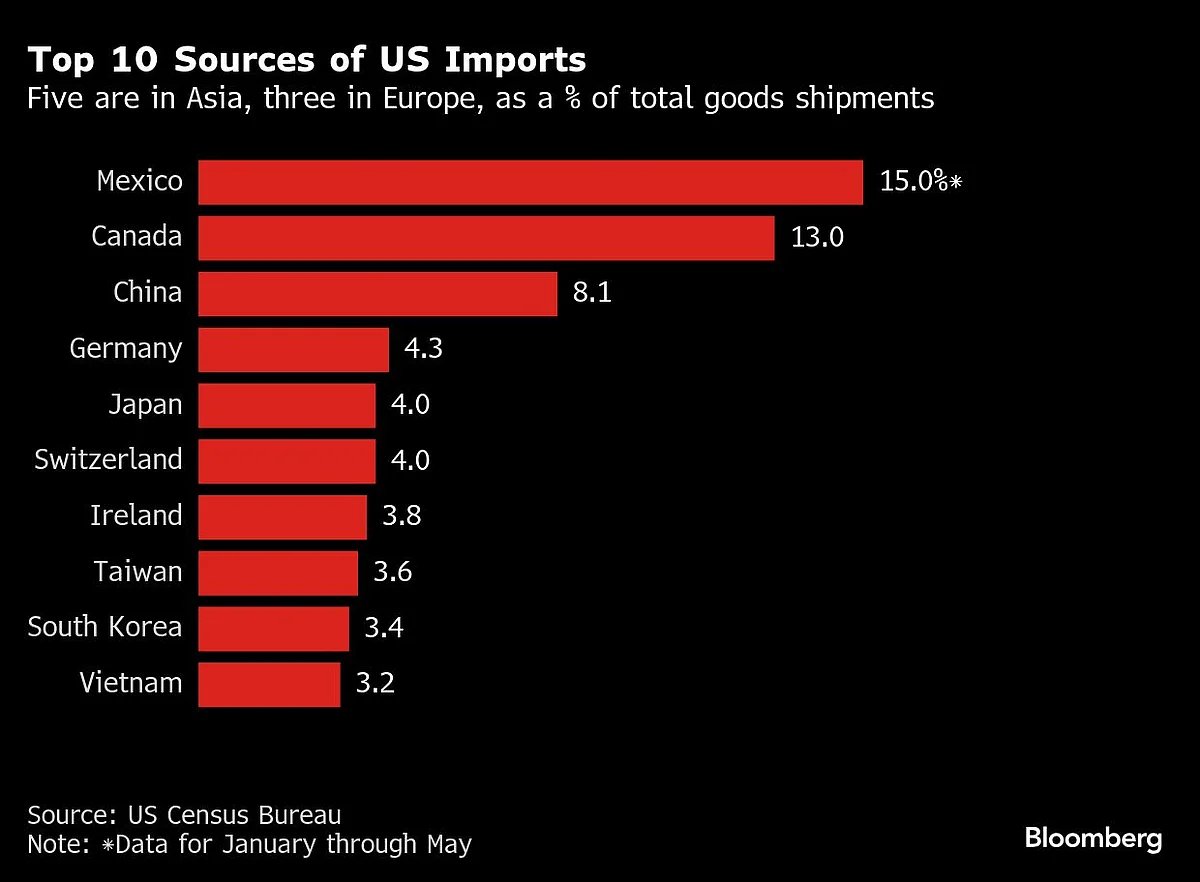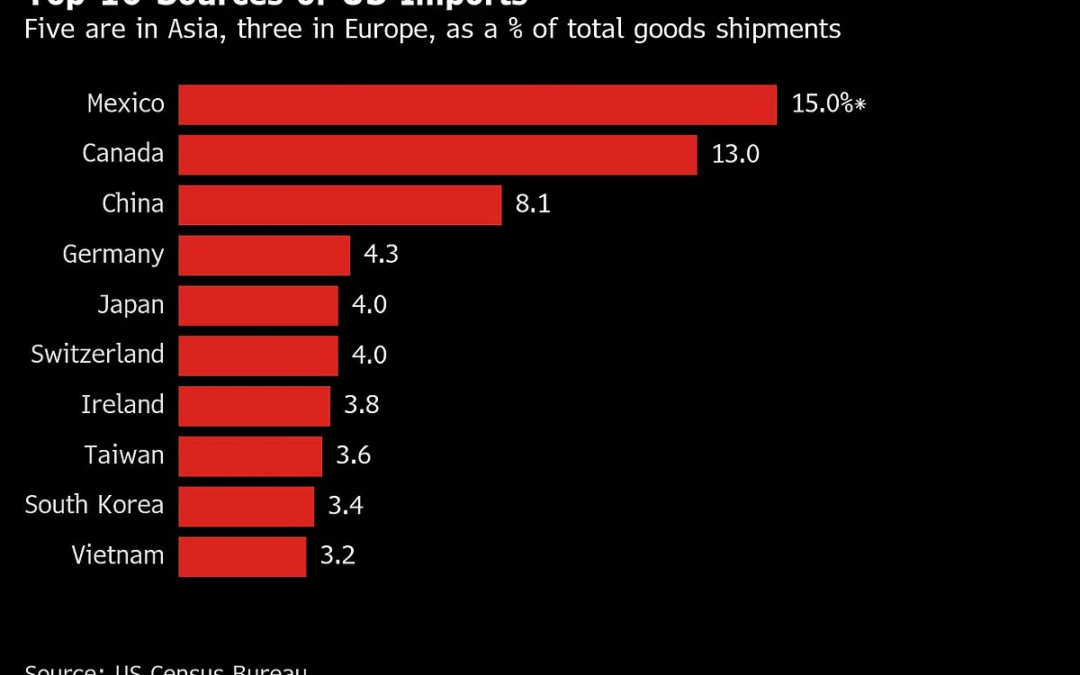Major US trading partners hurried over the weekend to secure trade deals or lobby for extra time as President Donald Trump said he’s notifying about a dozen countries on Monday of the new tariff level on their shipments to the US.
“We’re going to be very busy over the next 72 hours,” Treasury Secretary Scott Bessent said Sunday on CNN’s State of the Union, referring to the time left before the administration’s July 9 deadline.
Trump told reporters over the Fourth of July weekend that he “signed some letters and they’ll go out on Monday – probably 12” initially. He declined to identify them, saying the directives involve “different amounts of money, different amounts of tariffs and somewhat different statements.”
Bessent said several big agreements are close, though countries receiving letters will see their exports face the most extreme US tariffs — some as high as 50% among the more than 50 economies targeted on April 2 — starting Aug. 1 if they don’t make a deal. Trump officials have stated for weeks that multiple accords are imminent, but only a limited framework with the UK, a truce with China and Trump’s brief outline of a pact with Vietnam have been announced.
Trump and Bessent’s latest remarks suggest talks remain fluid and deals are elusive three days before the deadline. The Treasury secretary said Washington is applying maximum pressure on trading partners, and there’s been “very good progress” in its discussions with the European Union — a 27-nation bloc that accounts for almost one-fifth of total US goods trade.

The letters initially were supposed to go out on July 4 with a tariff imposition date of Aug. 1, based on Trump’s earlier comments. But US officials were busily negotiating through the holiday weekend, including with Japan, South Korea, the EU, India and Vietnam.
For more, read Bloomberg Economics’ INSIGHT: What to Expect as July 9 Trade Deadline Looms
One of Trump’s signature moves in dealmaking is a unilateral threat when negotiations reach critical stages, so it’s unclear whether the letters he describes are real, or merely meant to strike fear into trading partners still reluctant to offer last-minute concessions.
After Trump announced an agreement with Vietnam last week, the country’s Ministry of Foreign Affairs said negotiators were still coordinating with their US counterparts to finalize the details.
While an interim accord with India was also expected to be reached, officials in New Delhi have signaled a tougher stance in recent days, threatening levies on some US goods in retaliation to Washington’s higher tariffs on automobiles and their components.
Seeking an Extension
Also concerned about auto tariffs is South Korea, which has discussed with US officials extending the deadline in a last-ditch bid to avert higher levies.
Basking in a major legislative win last week and with the US stock market at record levels, Trump’s newest trade barriers risk re-igniting investors’ concerns about a broad and complex new web of customs duties to be paid by American importers.
The initial rollout of Trump’s so-called reciprocal tariffs on April 2 sparked fears of a US recession and sent markets tumbling. That gave way to a 90-day freeze of those rates at 10% through July 9.
On top of the additional costs that tariffs create for US companies that purchase goods from abroad, domestic exporters face the possibility of retaliation from economies, including the EU.
EU member states were briefed on the status of negotiations on Friday after a round of talks in Washington last week ,and were told that a technical agreement in principle was close, Bloomberg News previously reported.
Japan’s Stance
Meanwhile, Japanese Prime Minister Shigeru Ishiba said the country is prepared for all possible tariff scenarios. Speaking on Fuji TV’s “Sunday News The Prime” program, he said Japan — another major auto producer trying to avoid Trump’s tariffs — is ready to “stand firm” and defend its interests while anticipating every possible situation.
Cambodia’s government said in a statement on Friday that it had agreed with the US on a framework agreement that will be released publicly soon, with a pledge to continue cooperating closely. At 49%, Cambodia’s threatened reciprocal tariff was among Trump’s highest. The Southeast Asian nation is a sizeable exporter of textiles and footwear to the US.
Last week Indonesia signaled confidence it is close to securing a “bold” trade deal with the US that will span critical minerals, energy, defense cooperation and market access ahead of the looming tariff deadline, according to the nation’s chief negotiator.
(Adds Bessent comments in second and fourth paragraphs)
© 2025 Bloomberg L.P.
. Read more on Global Economics by NDTV Profit.

